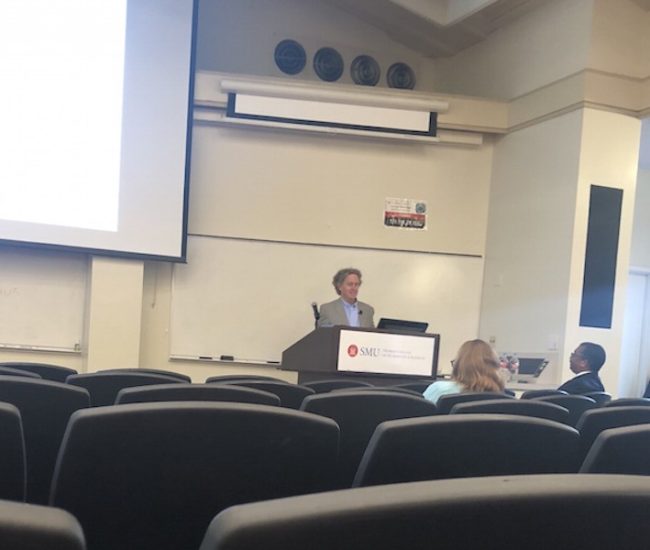On Thursday, Sept. 27, Dr. Christopher Newfield visited Dedman College to give a lecture concerning the precarious future of universities, both public and private, in the next few decades.
Newfield is currently a professor at the University of California, Santa Barbara, where he teaches literature and American studies. Much of his critical studies concern the future of American higher education. In his book “The Great Mistake,” Newfield explores how education has been continually altered by an increased privatization of education and the view that universities should be treated like businesses.
One of the leading arguments Newfield makes is that universities are seen as a private good. From this perspective, students are the ones who benefit the most from higher education and therefore should be the ones to bear the financial burden. As a result, students have accumulated massive amounts of unprecedented debt, and thus are falling further and further behind in comparison to international universities.
“This is the kind of fatalism that I very much disapprove of,” Newfield said. “When you create the great mistake, which is this kind of fatalism, to say ‘okay, there’s some public stuff here, but we are basically now a private good,’ you underline the liability of the university.”
So what answer does Newfield offer to current and prospective students and faculty? His solution is to essentially reverse this “private-good” mindset and to instead think of universities as a public good from which everybody benefits. In his conclusion, Newfield argues that students are the key to the success of the future, and in order to ensure they keep wanting to learn and keep pursuing a higher education, the government must take away the financial burden that is holding them back. This would be the best case scenario, but Newfield recognizes the difficulty in changing an entire country’s mindset.
“I realize that the interlocking negativity of the cycle and the amount of work needed to fix it is intimidating, and is itself a form of depression,” Newfield said. “But what if we saw the trend as our friend? What if we looked at social factors and see them as a just a linear extrapolation of enemy forces that are going to crush us?”
This outlook provides a way to escape fatalism, and that is to acknowledge the trend is not fixed. “The Great Mistake” may still be changed through the work of a collective body of people, united in bringing students, professors, administrators, and those affected by the current mindset out of this declining spiral. Newfield provides a variety of insight and analysis of his theory in his book, so those interested in learning more about this approach should check it out.









